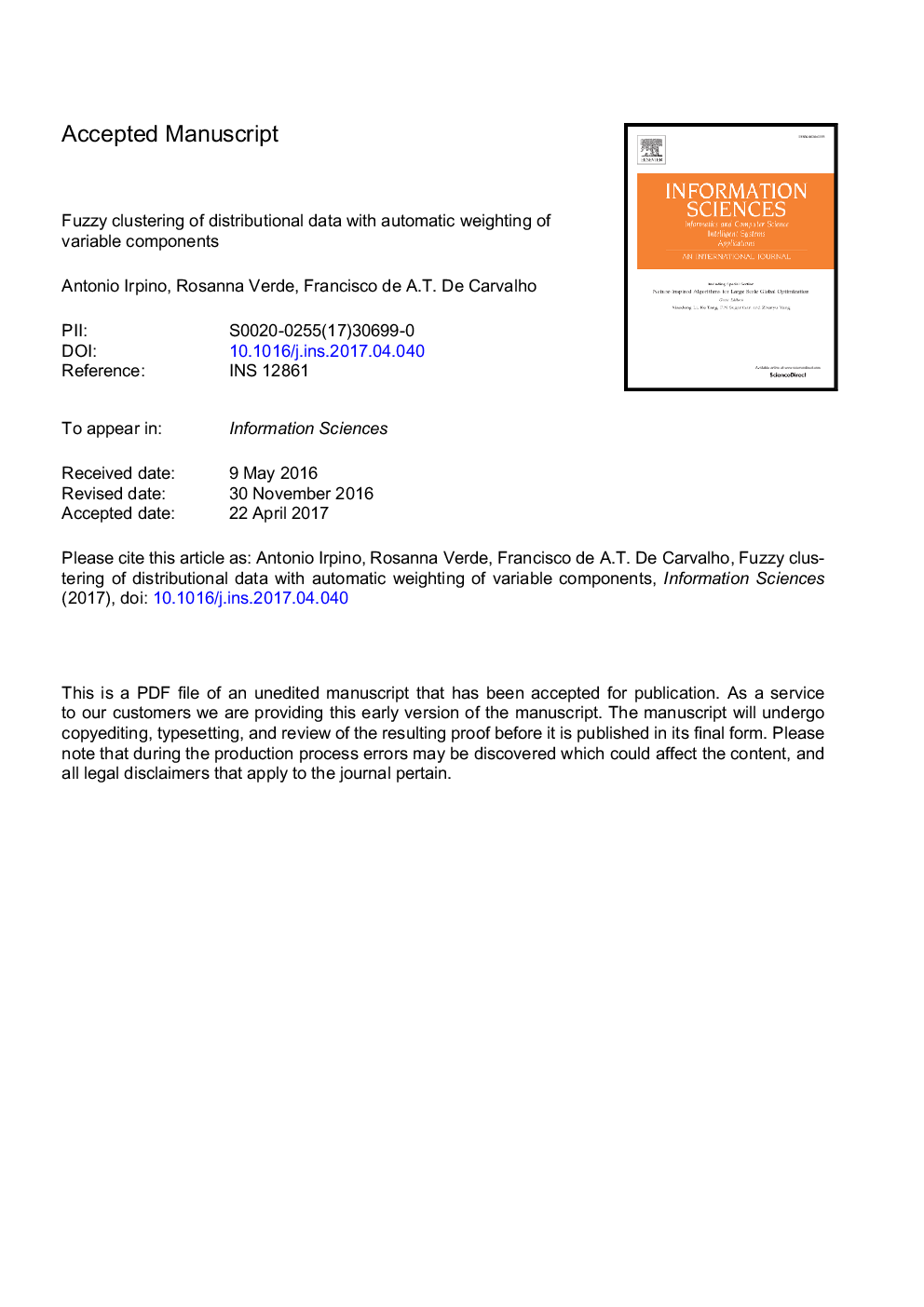| Article ID | Journal | Published Year | Pages | File Type |
|---|---|---|---|---|
| 4944445 | Information Sciences | 2017 | 34 Pages |
Abstract
Distributional data, expressed as realizations of distributional variables, are new types of data arising from several sources. In this paper, we present some new fuzzy c-means algorithms for data described by distributional variables. The algorithms use the L2 Wasserstein distance between distributions as dissimilarity measure. Usually, in fuzzy c-means, all the variables are considered equally important in the clustering task. However, some variables could be more or less important or even irrelevant for this task. Considering a decomposition of the squared L2 Wasserstein distance, and using the notion of adaptive distance, we propose some algorithms for automatically computing relevance weights associated with variables, as well as with their components. This is done for the whole dataset or cluster-wise. Relevance weights express the importance of each variable, or of each component, in the clustering process acting also as a variable selection method. Using artificial and real-world data, we observed that algorithms with automatic weighting of variables (or components) are better able to take into account the cluster structure of data.
Related Topics
Physical Sciences and Engineering
Computer Science
Artificial Intelligence
Authors
Antonio Irpino, Rosanna Verde, Francisco de A.T. de Carvalho,
